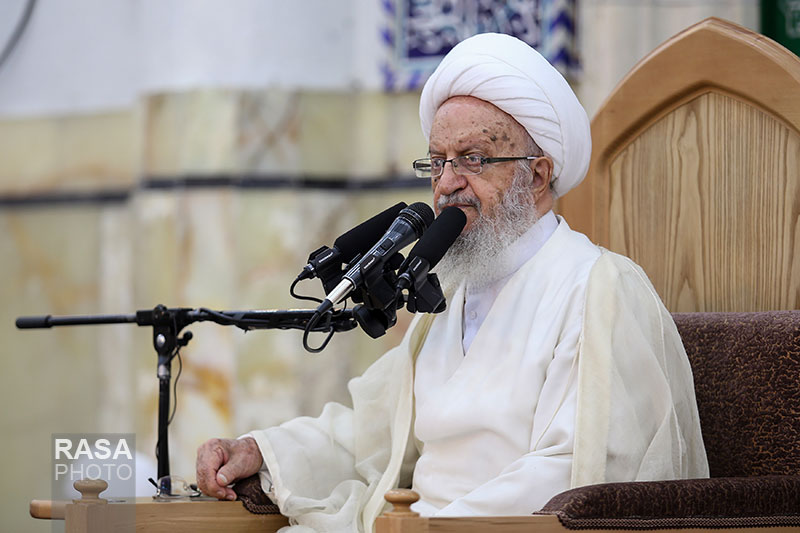
RNA - “As time goes on, it becomes more and more obvious that the world today is full of deception, a recent example of which was when terrorists were defeated in the Syrian city of Aleppo,” said Grand Ayatollah Makarem Shirazi during his jurisprudence class held at Qom’s Grand Mosque.
Speaking about the foreign media outlets that “are shedding crocodile tear for the children of Aleppo” his eminence said: “Some media outlets started shedding tears for the children of Aleppo right when they saw terrorist forces being defeated there. If they’re truly worried about human rights, why would they keep silent in regard to the Yemeni children’s devastating humanitarian situation?”
More than 9,400 people have been killed and at least 16,000 others injured in Yemen since last March, when Saudi Arabia launched its military aggression against the country.
Riyadh has been backed by Egypt, Morocco, Jordan, the United Arab Emirates, Sudan, Kuwait, Qatar and Bahrain in the military campaign.
“The UN secretary general harshly criticized the Saudi regime for its deadly attacks on Yemen but later decided to take the Arab monarchy off from the child rights blacklist for killing children in Yemen after they threatened to cut off funding to UN humanitarian programs,” he added.
The Grand Ayatollah also said that UNICEF has also filed horrible reports regarding children’s situation in Yemen. “Why don’t these media outlets shed tears for these innocent children,” he wondered.
On its most recent mission to northern Yemen, Amnesty International found evidence of US, UK and Brazilian cluster munitions used by the Saudi Arabia-led coalition forces. The use of cluster bombs is banned under the Convention on Cluster Munitions, to which the UK is a State Party.
Ayatollah Makarem later noted that the west “struggles to compensate the setbacks it has experienced in Syria by spreading such propagandas regarding the war in Syria but fortunately the people of the world is awake now and understand the crocodile tears that they're shedding. People now understand their paradoxical policies regarding the Middle East.”
995/930/371